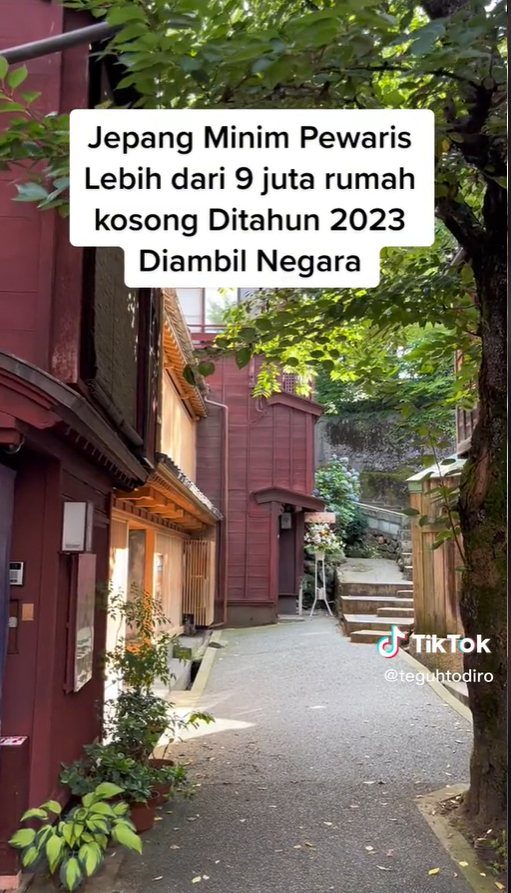Inul Once Again Brings Luxury Blanket on the Train, See the Appearance
This blanket looks soft and blue.
Dream - The population in several countries in Asia, such as Japan, tends to have proportional bodies. The number of obese people is also not as high as in other countries.
This makes some people wonder why the Japanese population has no difficulty in maintaining their body proportions. Especially when many activities can be done virtually.
Nutritionist, Maria Eleonora, sought answers to these questions when she visited Japan. According to her, the following 3 things make it easier for the Japanese population to maintain their weight proportionally.

Photo: Shutterstock
In Japan, calorie-free and sugar-free packaged drinks are very popular in convenience stores. From black coffee to sugar-free green tea, they have become the favorite of the Japanese population.
No wonder they find it easier to maintain their weight even though they often consume packaged drinks.
There are quite a few restaurants that sell various types of salads. So, you can eat healthy food according to your taste. The food served is also practical to take on the go.
3. Accustomed to Walking
The habit of walking in Japan, supported by the abundance of sidewalks, makes its population less likely to gain weight. According to Maria, walking in Japan can reach tens of thousands of steps in a day. So, are you interested in trying the Japanese lifestyle?
View this post on Instagram
Dream - Surprising facts come from Japan, which has 9 million vacant houses taken by the state. This fact has become a topic of conversation among netizens. The reality was revealed in a viral video posted by an Indonesian worker in the Land of Sakura.
“Japan has a lack of heirs. More than 9 million vacant houses in 2023 are taken by the state,” quoted from the TikTok account @teguhtodiro.
The man showed how these vacant houses still appear well-maintained and clean even though no one lives there.

The detailed location of these housing areas is unknown, but the video was flooded with comments from netizens speculating that the lack of heirs for these vacant houses is due to low birth rates and a lack of marriages.
“I heard that Japan has a low birth rate,” wrote the account @DiyahMozå15{^×^}.
“Because few young people want to get married and have children..,” tweeted the account @yulia / Sharing Skincare.
“🥺🥺 many people don't get married,” commented the account @Nursali Salamah.
Vacant houses without heirs in Japan are called 'Akiya' or abandoned houses without heirs or new tenants. BBC reported that the highest record of properties throughout Japan registered as akiya was 13.6 percent in 2018.
Population decline is a major problem for many countries, including Japan. In 2018, Japan experienced the lowest number of births, while deaths continued to exceed births. BBC reported that more than 20 percent of its population is 70 years old and above, and the birth rate is declining.
Dr. Chie Nozawa, a Science and Engineering Professor at the University of Tokyo, estimates that the akiya problem will grow in urban areas that have not found a solution to revitalize older environments with rapidly declining populations.
Akiya adorns the landscape throughout Japan, listed in 'akiya banks' from Tokyo Prefecture to rural areas of Okayama Prefecture to mountainous Kumamoto Prefecture in Kyushu, at the southern end of the Japanese archipelago.
Akiya is concentrated in rural areas because young generations leave their hometowns to settle in cities, which are considered to have more opportunities.
Meanwhile, Insider also reported millions of vacant houses in Japan. Some of them are given for free by the Japanese government or sold at the lowest price of US$500 or around Rp75.6 million in 2018 to attract residents.
The Japanese Housing and Land Survey, conducted every five years, also recorded the highest number of akiya in Japan in 2018, reaching 8.49 million.
Many of these houses are left vacant after the death of relatives or when people move. The 2018 survey also found a 3.2 percent increase in the number of akiya compared to 2013.
The report also found that 13.6 percent of the 62.42 million houses in Japan are uninhabited. This is particularly evident in Wakayama, Tokushima, Kagoshima, and Kochi prefectures, all of which have vacancy rates of more than 18 percent.
Cobain For You Page (FYP) Yang kamu suka ada di sini,
lihat isinya
This blanket looks soft and blue.
Isotonic can also restore lost energy
Galaxy S23 not only offers powerful camera and fast performance, but also supports environmental sustainability, without sacrificing design quality and aesthetics.
This mother of three is seen wearing a hot pink top filled with white patterns
Not only do Ayu and Nagita exercise together, they also appear to be wearing the same clothes
Here are some reasons why pinched nerves often occur in women
Although the model is classic like most knits, the shirt worn by Nagita comes from the famous brand Meissey Miyake
The cutbray cut gives an elongated impression on the legs of Andhika Pratama's wife
One of the highlighted upgrades of Galaxy S23 is the front camera innovation in the industry that allows users to share the most epic moments through high-quality photos and videos anytime, anywhere.
Combining her all-green top, Tasya wears two-tone jeans with wide cuts, also known as boyfriend jeans
This family car produced in Cikarang is offered at an attractive price and tempting features.
Telecommunication technology for the future.